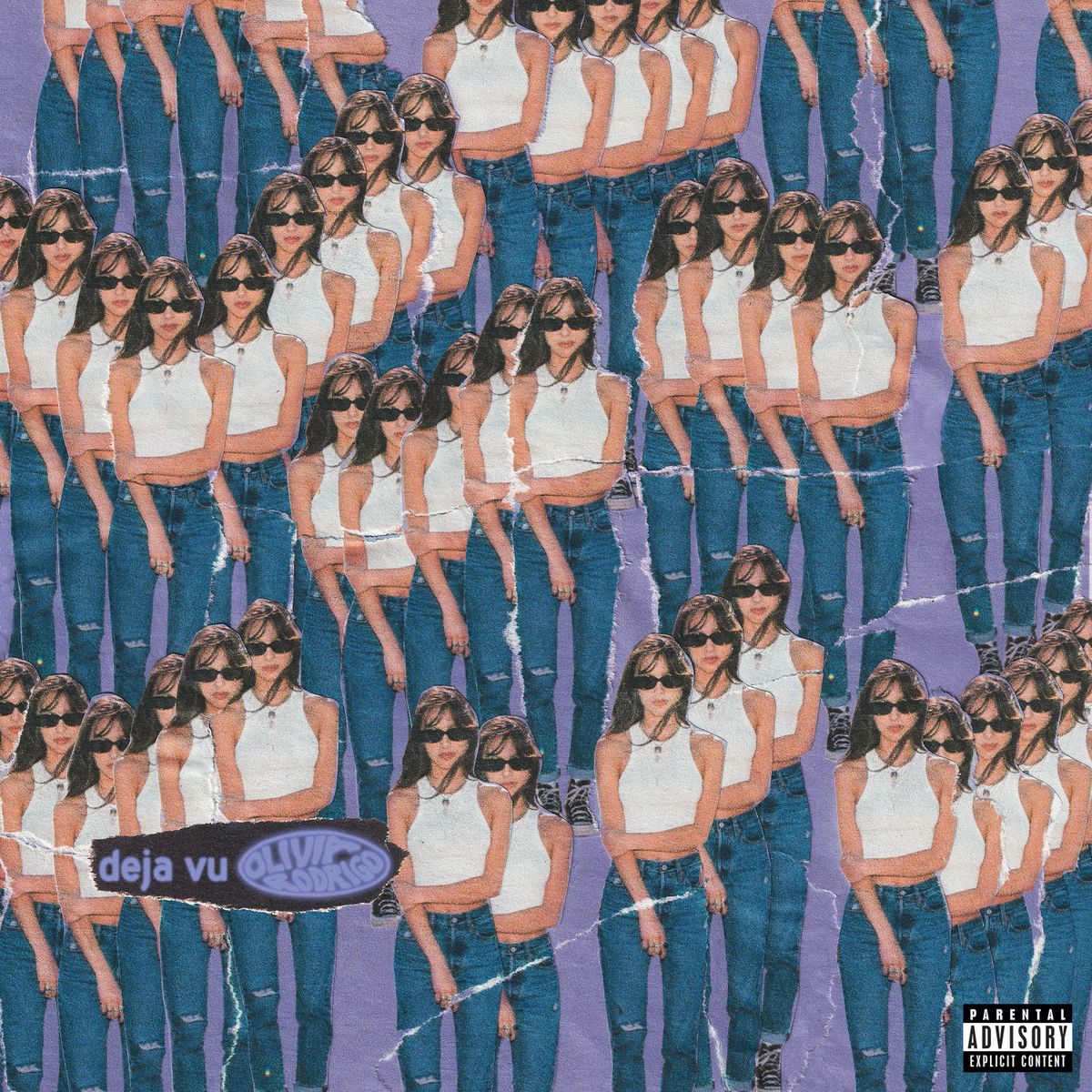Olivia Rodrigo’s debut ‘Sour’ is one breakup song after another

There is a noted history of child and teenage actresses going on to make good music. There’s indie icon Jenny Lewis (Rilo Kiley, the Postal Service), the ever-relevant Miley Cyrus (who did a solid “SNL” performance a few weeks back), pop icon Selena Gomez and many more.
Olivia Rodrigo is firmly planted in that legacy. She played a few roles on the Disney Channel – including one in “High School Musical: The Musical – The Series” – before moving into the musical arts with her debut single “Drivers License.”
“Drivers License” took the internet by storm, clocking more than 700 million plays on Spotify before her album release on May 21. It was popularized largely by TikTok. The quiet “you said forever now I drive alone past your street” and subsequent sonic explosion made for one of the app’s most popular sounds.
That quick rise to popularity, though, meant that the album announcement was met with mixed responses. As with all young, quickly popular artists, the eye rolls and ughs are plentiful. And Rodrigo’s album gives reason for these reactions.
But right from the get-go, Rodrigo is making a case for herself, for music listeners to give her a chance at winning them over. Internet sensation and child actress she may be, but there is no question that she is also a talented musician. The question is how does she take that talent and transfer it into the album form?
“Sour” is a short 34 minutes long and features the (in?)famous “Drivers License,” two other previously released tracks and a trove of other pieces. Throughout the album, Rodrigo demonstrates her notable vocal talent and her ability to imitate and expand on the works of her influences (Lorde, Taylor Swift and others).
The opener “Brutal” is a bold opening. It throws the book open on what we’ve all been wondering: “Who am I, if not exploited?” she asks at the get-go. The grindy, late-’00s pop-punk and fake feedback are a little cringy, but the song is convincing, in part because it’s a little tongue-in-cheek.
“I’m not cool, and I’m not smart / And I can’t even parallel park,” she sings. Are we to believe her? She seems pretty cool. But the album drops that tone immediately for its dominant voice: the soft and very literal breakup song: “Ain’t it funny how you ran to her / the second that we called it quits,” she sings on “Traitor.”
It’s a theme that will dominate the album’s lyrics to the point of being repetitive. Another challenge Rodrigo faces is that she can do a very good impression of Lorde to the point where she sometimes sounds like an impersonator. One of the album’s strongest tracks, “Good 4 You,” opens with what sounds like stylistic copying.
Rodrigo’s chord construction, her intonation and to some extent her lyrics seem right out of Lorde’s discography. But, thankfully, she doesn’t stick to that form. The song quickly shifts into something less Lorde, more Rodrigo pop-rock. In short, we can write off that intro as a musical allusion rather than the imitation it so resembles.
The remainder of “Good 4 You” rocks. It’s catchy and mischievous, the drama of the story – “well, good for you, I guess you moved on really easily / you found a new girl and it only took a couple weeks” – coming through in Rodrigo’s personality-filled vocals.
Comparing that line to the one quoted from “Traitor” gives way to the album’s biggest issue. Taken individually, each breakup song is a great one. But when you put them all in an album together, they blend and become indistinct. The lyrics are too simple and similar, the perspective on breakups hardly deviating except on the more creative “Drivers License.”
Compositionally, “Sour” is a mixture of soft lyric pieces and angsty rock. Because of the similarity between the soft ones, the rock tracks are the highlights. The grinding guitar, running basslines and driven drums back her convincingly emotive voice.
And, taken as a whole, the album is a strong start. The production, composition and lyrics are catchy and not convoluted. Her voice is incredible, and when she lets it fly on the rock tracks, you’re right back with the best of Avril Lavigne and early Paramore.
Will I be listening to the album going forward? Yes. But I still want more risk, and less tribute from an artist who seems to have an ear for pop rock, in part because I’m certain the result would stun.
Julien A. Luebbers can be reached at julien.luebbers@gmail.com.